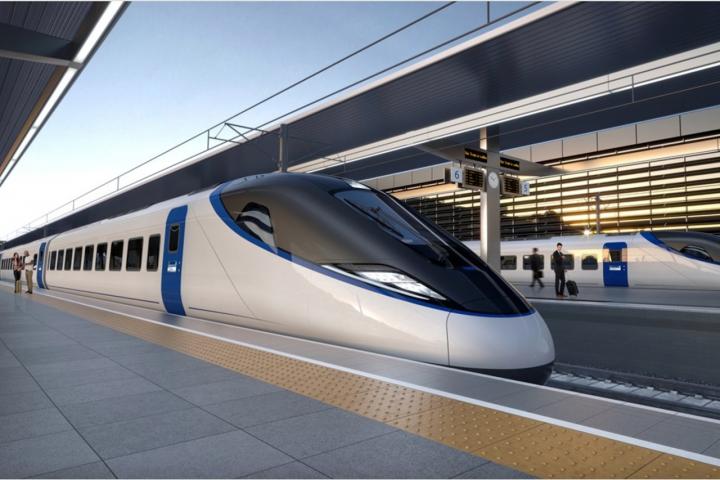
Cheshire East Council says the Government's decision to scrap HS2 north of Birmingham is a 'devastating blow to Crewe, Cheshire East and the wider region'.
Today (4 October), the Prime Minister Rishi Sunak announced that he is 'cancelling the rest of the HS2 project' – meaning high-speed rail will not make it to Crewe.
He also announced that 'every single penny' that Phase 2a and 2b would have cost will be 'reinvested', with £36bn for 'hundreds of new transport projects in the North, and the Midlands and across the country'.
The council is now urging Government to provide assurance that Cheshire East will be provided with sufficient funding from this £36bn HS2 saving to enable new transport projects and equivalent economic growth.
Councillor Sam Corcoran, leader of Cheshire East Council, said: "Today's announcement from Government is extremely worrying and disappointing and has significant and far-reaching impacts on the council's plans, our communities and businesses, and the North as a whole.
"The council has long supported the principle of HS2 and its core objectives to connect the largest economic regions across the UK, and we have already invested and committed significant funds and resource through our efforts to maximise the benefits and opportunities of HS2 to Crewe and Manchester.
"Investment in the full HS2 western leg to Crewe and Manchester would improve places and prosperity across the region and be the vital economic backbone to unlock growth, regeneration, and new jobs – delivering opportunities and benefits for generations to come.
"Phase 2a and 2b are also critical to delivering levelling up to places like Crewe – where half of the council wards are in the top 10 per cent most deprived in the country.
"But today's U-turn from Government will result in levelling down, not up, and is a devastating blow to Crewe, Cheshire East, and the wider region."
Last week, the leader and deputy leader of Cheshire East Council wrote to the Prime Minister asking for an urgent meeting before any decision was made on HS2. It received no response.
Cllr Corcoran added: "We of course need time to understand the full scale of the impact of Government's announcement. But the council has already committed £11.2m to long-term plans based around 5-7 high-speed trains per hour stopping in Crewe, knowing that the eventual economic benefits would have been far greater, and local regeneration plans are already under construction.
"In Crewe alone, HS2 would unlock nearly 5,000 new jobs, 4,500 new homes and boost the local economy by £750m.
"This was a once in a lifetime opportunity which has now been pulled from underneath us.
"That is why despite today's news, we will work with our neighbours, partners, and businesses in the North to make the case to Government to reconsider its decision and to deliver on its promises to the North through delivery of the full western leg of HS2 to Crewe and Manchester and future commitments to Northern Powerhouse Rail."
Cllr Craig Browne, deputy leader of Cheshire East Council and chair of its highways and transport committee, said: "HS2 is not about speed or a fast train to London; it is about freeing up capacity across our congested northern rail network so that we can get the regular, reliable services upon which our businesses, commuters and visitors expect and deserve.
"It is important for an integrated sustainable transport strategy for Cheshire East and the sub region.
"It is also about economic growth and levelling up, with HS2 estimated to boost the economy of Cheshire and Warrington by £2bn per annum alone – a hugely significant sum.
"That is why for more than a decade, the council has worked collaboratively and constructively with Government on its plans for HS2 north of Birmingham and has developed the Crewe Hub vision – based on the HS2 promises Government has made to Crewe and Cheshire East.
"This includes recent commitments to identify and undertake design work on the interventions needed at Crewe Station, with the Department for Transport funding a study on urgent infrastructure requirements, which took place just a few weeks ago.
"As a result of today's announcement, our ambitious plans for growth will no longer be viable and it is a fresh burden on already extremely stretched council resources.
"We will now seek answers from Government on how it intends to compensate the council, and its partners, for the significant financial investment, time and resources already expended, and the passion that local authorities, communities and business have invested in the continued promises of HS2 over many years and ensure that this has not been in vain. This includes seeking funding for transport infrastructure."
Cllr Browne added: "Today's announcement from Government has come as a particular shock given it was only in August that we welcomed Minister of State for Rail and HS2, Huw Merriman MP, to Crewe.
"We discussed positively how rail infrastructure can support town centre regeneration, and the benefits HS2 would bring to Crewe, and he saw first-hand why Crewe station desperately needs investment to ensure it is future-proofed – irrespective of HS."

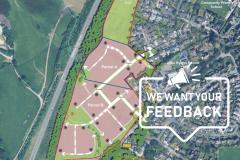

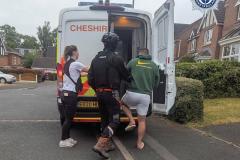

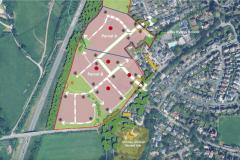

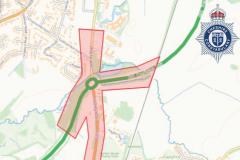
Comments
Here's what readers have had to say so far. Why not add your thoughts below.
What should have been a vital piece of visionary infrastructure to join up our London centric economy and spread the wealth, had we had the commitment to actually do it. It was appallingly managed, cut back, then halted in its tracks leaving a very expensive not-much-use piece of railway as a permanent testament to the shambolic Tories.
Other countries just get on and build their new railways. In mainland Europe short haul flying is pretty much a thing of the past as a result.
We come up with excellent carefully considered plans, then find lots of reasons why it can't be done.
I despair!
"What should have been a vital piece of visionary infrastructure to join up our London centric economy and spread the wealth"
So how would this have made the general public wealthier then Vince.
Furthermore, our publicly displayed inability to manage important infrastructure projects, to run away from them at the first sign of difficulty while other countries just get on and do it and do it effectively, makes us a laughing stock. It sends the message that Britain is no longer the place to locate one's business.
So what confidence will construction companies have to bid for any future major public sector projects? At the very least they will pile in loads of contingency cost to cover such possible arbitrary cancellation part way through the project (making such project from now on very much more expensive for the taxpayer). And many will simply decline to bid for the work.
Well done Sunak!
There were very good technical and operational reasons to go for a Eurostar type system with 186 mph trainsets, which would have been quieter and the land take would have been substantially less. The time difference over a 250 mph system with all the speed-up and slow-down periods would have been negligible.
So it is not Sunak's fault, with more people presently supporting the cut that want the system retained to Manchester. It is the fault of politicians and top-level civil servants not undertaking sufficient due diligence in the development stages of the project and being able to see the huge pitfalls.
The design speed should not affect the amount of land required, though it may require marginally more gentle curves for higher speeds. As for noise, that's not proved to be a problem on existing high speed lines in Japan, Europe and elsewhere, and is certainly quieter than a motorway. And what noise there is from its clean electric trains is occasional, not continuous as motorway noise is.
HS2 was, in its original form before politicians with no knowledge started hacking sections off it, exactly what UK needed to connect and level up the nation. That it turned into a shambles was the fault of politicians and HS2 Ltd (a public body, wholly funded by the Secretary of State for Transport and sponsored by the Department for Transport).
Specifically, the failings were:
1) Failing to publicise the true purpose of HS2, allowing media drivel that it was a railway to get a few businessmen to London a bit quicker to become established in the minds of the general public (this drivel sold newspapers and gathered electronic media clicks, which is what motivates today's media).
HS2 was really about releasing 70% of the capacity on the almost-full existing north-south main lines to allow many more local trains and critically, much more rail freight to operate on those existing lines. It was to do this by removing the high speed non-stop capacity-gobbling trains off those classic lines. The public perception of HS2, as a result of this information vacuum, is not in line line with reality. Maybe that suited this government's agenda?
2) Failing to control costs. The government were not at the steering wheel, and neither was the faceless HS2 Ltd. It's hardly surprising that given no-one was effectively managing the project, costs spiralled out of control.
3) Government meddling for populist reasons (linked to my point 1). Lopping parts off it, and deliberately extending the project timescales removed much of the capacity pay-backs of the new railway while vastly increasing the costs of the bits of HS2 that were left. And we don't yet know the costs in compensation that will have to be paid to contractors whose hard won contracts have been cancelled or curtailed.
We will end up with a very expensive high speed railway from Birmingham to not-quite-London. It is difficult to imagine how it could have been more poorly managed. And that is entirely the fault of politicians and faceless unaccountable HS2 Ltd.
There have been multiple reported cases of major under-estimates, perhaps intentional in order to commit the project, including faulty geotechnical data, weak estimating on the cost of compulsory purchases, poor initial design estimates for existing and new station developments, etc etc all resulting in hugely increased project cost estimates.
If the initial cost estimates had been reasonably accurate, then it is most doubtful that the project would have even reached the design and engineering phase. I am sure the very well paid executives in HS2 have done their best with an impossible brief.
I am not involved in major infrastructure projects any more as I am now retired, but HS2 reminds me so much of major defence projects where costs were deliberately under-estimated just to get them into the programme, with the hope that government would swallow the inevitable cost increases.
Furthermore, you don't make any reference to your assertion (which I debunked) that the design speed of HS2 was 250mph. Did you pluck that out of the ether?
You go on to make assertions about deliberate underestimating of project costs based on your personal experience with defence contracts. Obviously I can't say whether such things happened in your industry, but I can say that in my experience of bidding for and managing multi-million pound I.T. contracts in the private and public sectors (including defence) we never did that (it'd be a recipe for going bust). In fact, to cover unforeseen risks we would add contingency, which is normal project management practice. Those bidding for HS2 contracts did exactly that where (for instance) the geology would not be known until work commenced. So rather than the costs being underestimated, they were quite possibly overestimated to cover contingency. If you can point to a real example, rather than an assertion, of deliberate under-estimating on the project I would be most interested to see it.
So how does any project get behind timescale and over-budget? It does it day by day if it is not carefully managed, and HS2 was very poorly managed. Two major ways to send a project off the rails are scope changes during implementation and deliberate pushing back of end dates. Both of these happened in spades (pardon the pun) on HS2. Just one example of scope increase is the10 miles of unnecessary Chiltern tunnel to appease NIMBYs, but the real biggies were lopping of, willy-nilly and on the back of a fag packet, major parts of the professionally planned system at the whim of non-expert politicians for short term cost savings.
As I have already pointed out in other posts, through mismanagement by government and their owned HS2 Ltd, costs soared. The blame for that, leading to the unilateral termination of HS2 beyond Birmingham in the north and Old Oak Common in the south by the PM at a party conference without consulting any of interested parties (not even Network Rail) and then 'salting the earth' by removing planning protections on the land so there's no reversal possible by a saner administration, is a supreme example of vison killed by selfish short-termism. The blame for the failure of HS2 lies 100% at the door of the Tories.